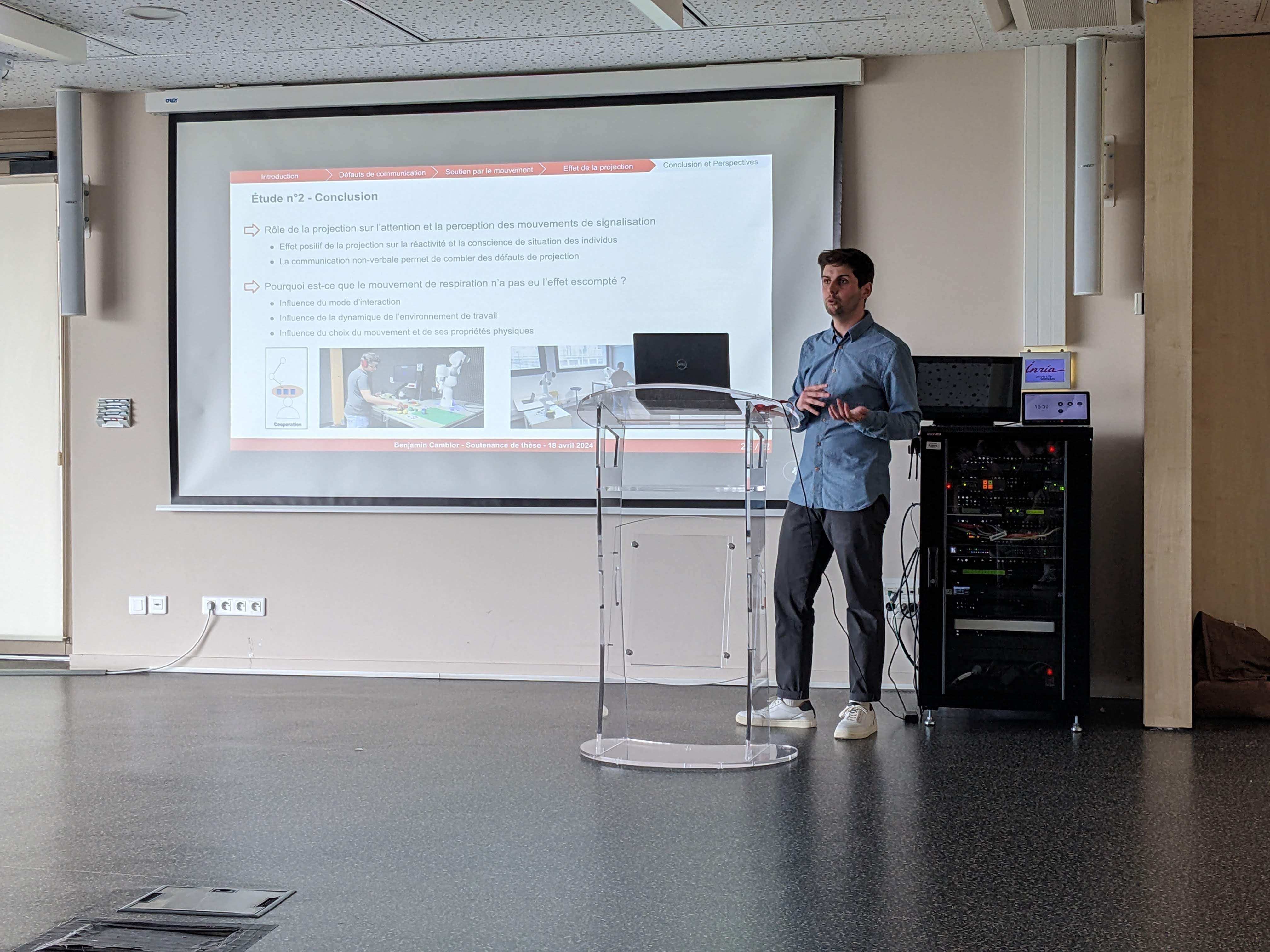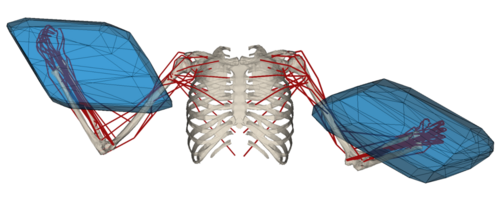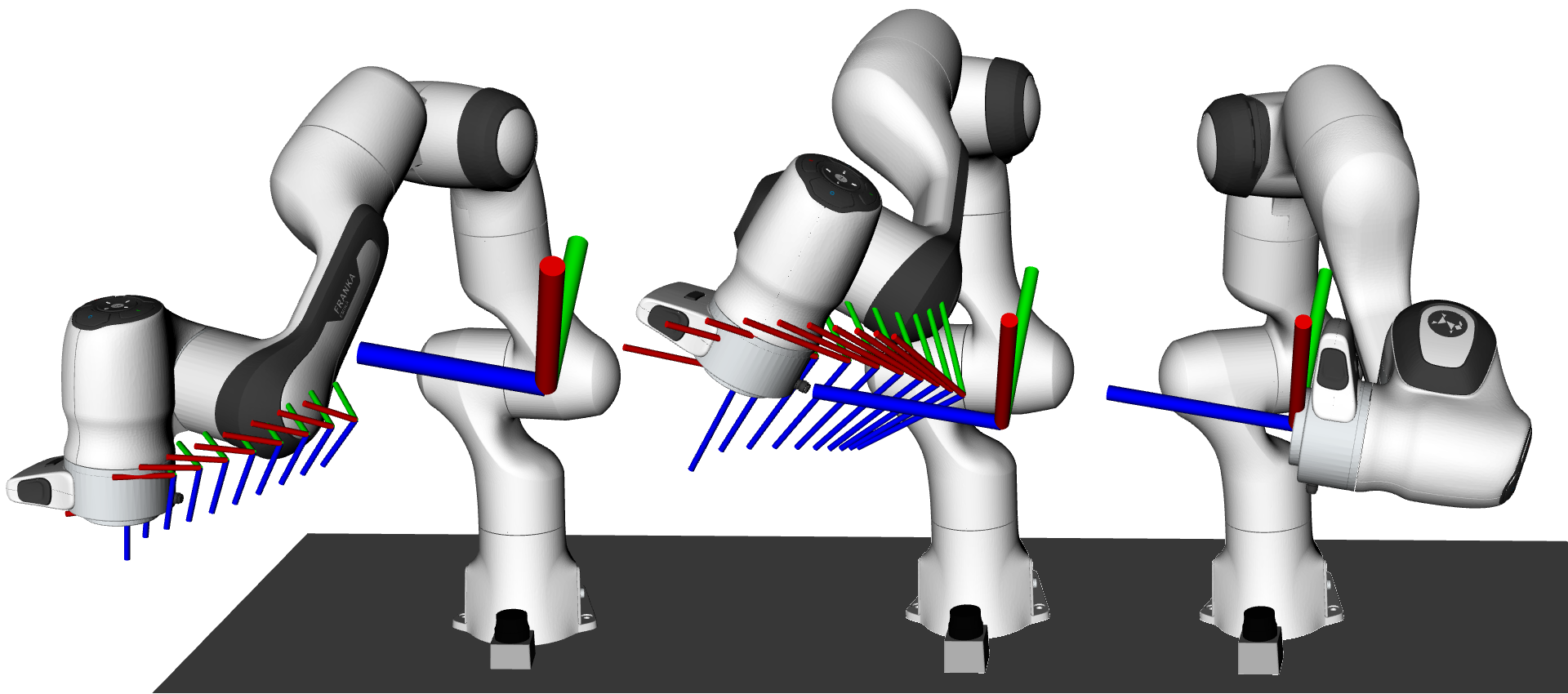We were pleased to see Benjamin Camblor defend his PhD thesis on “Exploiting robot motion to improve situation awareness in human-robot collaboration”.
Abstract One of the challenges of Industry 4.0 is to preserve the health and comfort of operators while improving their productivity. Collaborative robotics is a solution which, through appropriate assistance, enables the operator to focus on tasks for which he has expertise, while delegating loads and constraints to a collaborative robot.
[Read More]
Abstract This thesis is based on vision of the future where robotics and industry are centred around humans, emphasising collaboration between humans and robots rather than mere automation.
In this collaborative future, robots serve as active assistants, coexisting closely with humans and engaging in physical interactions to execute tasks. Such symbiotic systems leverage the unique abilities of both humans and robots, enhancing efficiency and prioritising human safety and well-being through personalised robotic assistance.
[Read More]
Abstract Collaborative robotics involves the transformation of industrial robots to function in shared workspaces alongside humans, resulting in more compact and manageable robotic systems. This evolution necessitates a reevaluation of the requirements for robot controllers. Safety remains paramount, but robots must also adapt to dynamic contexts where objects are in constant motion, and conditions are ever-changing as people carry out their tasks.
To address these challenges, this work proposes using Model Predictive Control (MPC) to empower the robot to dynamically adjust its operations in a responsive manner.
[Read More]


